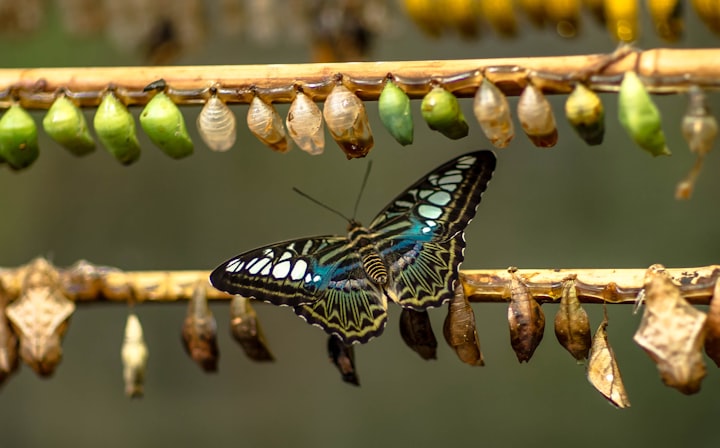
When I was younger, I always dreamed of being a writer. Maybe that was because I had spent my childhood with my nose buried in books, but that dream shifted and adapted as I grew older. Who knew that my love of film would shape my writing ambitions? Definitely not me.
It started a few years before I even thought of applying to university, specifically when I began attending college to progress in my academic career before uni. What Is the Difference Between a College and University? Colleges are often smaller institutions that emphasize undergraduate education in a broad range of academic areas. Universities are typically larger institutions that offer a variety of both undergraduate and graduate degree programs. In the UK, at sixteen you have the option to do your A Levels in high school or attend college for that equivalent amount of time to study a course centred on a particular subject that prepares you for university - I chose the latter.
So in college, I did a year of Performing Arts before switching to Film & TV studies. A lot of people are surprised if I mention I studied Performing Arts, but it actually gave me a boost in confidence and gave me an insight of how it feels to be on the other side of the camera or centre stage. The biggest achievement from that year was stunning my family when they realised I could actually act and I even impressed my course tutors with how well I took direction without complaint and just got on with it. I was also the only person on the course in a wheelchair, so I was constantly adapting and rethinking how to work with a script and my disability when performing.
Despite enjoying the course, my heart wasn’t actually in it. At seventeen, I had quite an open conversation with my family and my mother gave probably the best bit of advice I needed at that time:
“What can you see yourself actually doing? You need to study something you’re actually passionate about.”
Was I passionate about acting? No. I couldn’t actually see myself performing as a career. Plus at the time, there was hardly any positive disabled representation on TV or film and I knew my disability would play a factor in any potential auditions. On the week where we had to apply for the next course, I had a long think. I knew I wanted to get back into my first love - writing - but the only thing loosely connected to that was media studies.
As a backup, I applied for both courses. After a successful interview for both, I decided to go with Media. To this day, I do not regret my time on that course - it actually gave me the confidence I needed to make such a big commitment.
Learning the mechanics of life behind the scenes through college was definitely the best decision for my education. Granted, most of my scripts in my late teens were horrific and I vowed they would never see the light of day again. We can all relate to the cringe factor of those fledging writer years, but my screenplays back then were such peak melodrama and campy that they would’ve put Lifetime to shame.
Looking back, I think what truly took my writing in a more authentic direction was actually rooted in the loss of my grandmother. I had been in talks with some friends who were starting up there own production company - Broken Word Productions - and they were looking for a screenwriter. My grandmother had passed away just months prior and I was actually inspired by her when I pitched to them my idea. I wanted to adapt one of her favourite stories with a contemporary twist.
A modernisation of Emily Brontë’s Wuthering Heights. Due to the scale of the novel, I had to condense the first generation into two short scripts. Here, is where I found a way to delve into a side of my writing I actually hadn’t discovered before. Through the messy flawed characters, gothic horror elements and tragic demises of key characters - I realised that writing the darker side of humanity was actually something I was good at. The moral greyness of the cast and how to bring that characterisation into a 21st century setting was a challenge I thrived in. As well as reading the book back to front repeatedly and watched several past adaptations (Andrea Arnold’s gritty 2011 film definitely inspired my take the most), I wanted to know the characters inside and out. I naturally wanted actors right for the part and each actor brought a fresh take to their respective role - I particularly wanted to delve into the toxic relationship of Heathcliff and Hindley, which was played superbly by Kaz Sangha and Oliver Asante.
Would I do the films differently if I had the chance? Absolutely! As the original novel was very dialogue heavy, this influenced both of my scripts - which was bound to happen with adapting such a wordy novel. However, it was a learning experience and it was definitely great first steps to learning who I was as a writer and later a director. To this day, I keep in touch with most of the cast and crew from that first production - some of whom I’ve collaborated with on future scripts that I write specifically with them in mind.
After the last Heights film, many people wanted a third film - even though it would’ve been difficult to do with most of the familiar characters dead and the introduction of an entirely new cast of characters. However, I much preferred ending that two-parter on a sinister note with Heathcliff haunted by Cathy’s ghost. Through these shorts filmed across two summers, I stayed in the gothic horror style, delving into much darker stories.
This carried over into the scripts I wrote for my undergraduate degree, many of them exploring themes of coming of age, loss of innocence, surviving trauma, love, sex, loss etc. The list goes on. Even with my theatre debut with The Director’s Cut in London, I was one of twelve writers to devise a play based off the brief’s storyline of one man’s thirtieth birthday and his unwelcomed guests. My short play (Reunion) became the opening scene of what became a dark psychological drama about one man’s past coming to light through his estranged family and friends.
Throughout my three years of university, I became more comfortable and confident in who I was as a screenwriter. One of my feature scripts from the course was actually a semi-finalist at the SWN Screenwriting Network Competition in 2020. I’ve become more confident in the characters I want to write and the stories I want to tell. I’ve also found an amazing collaborative relationship with one of my good friends - he’s not only a great actor that I’ve written a diverse range of characters for, but we also click creatively in the writing process together. I always saw my writing as solidarity work, but having a writing partner that just gets my style and who is totally up for whatever character I write for him - that’s been an invaluable partnership that has allowed me to mature further in my writing.
Trying to distinguish when you “come of age” is never easy. I definitely didn’t know who I was as a writer at sixteen or seventeen. Despite what fiction and movies tell you, your teenage years is the best time to make mistakes, not have a clue who you are and learn as you go. Who I was at sixteen and who I am a decade later are two drastically different people, but I wouldn’t change the moments that have led me here.
We aren’t defined by one singular moment, one life altering choice. It’s actually so many little moments that shape the people who we become. It’s also the people in our lives - the ones we love, the ones we’ve lost, the ones who may have hurt us, the ones who teach us and the people who unexpectedly make a huge impact in our lives. Each relationship teaches you something about yourself and them as individuals.
A decade ago, I wouldn’t have seen myself as the first in my family to graduate with a First Class Degree, a writer with nominated scripts, short films and plays to his name or on the verge of finishing my debut novel - that’s a story for another time.
But it’s a process, truly. No one has it all figured out. My twenties so far have been where I’ve started to discover who I am and what I want to do with my life, which is why everything that has happened before has been worth it.
Just remember to take your time. You have time to write your story, so write it at your own pace.






Comments
There are no comments for this story
Be the first to respond and start the conversation.